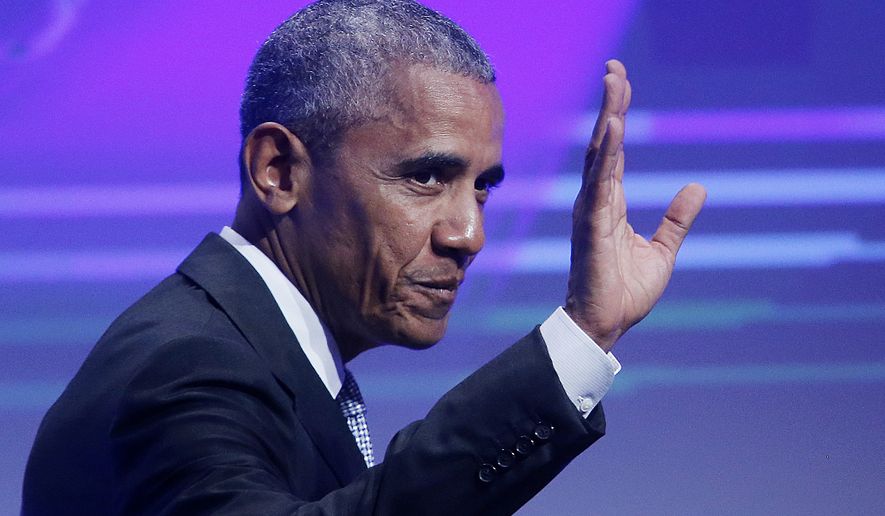A frustrated former President Obama chided President Trump Thursday for canceling U.S. involvement in the Paris climate agreement, and insisted the rest of the world is still headed toward lower greenhouse gas emissions even without American leadership.
Even as Mr. Trump was still speaking in the White House Rose Garden, announcing his decision, Mr. Obama issued a statement accusing his successor of isolating the U.S. by joining “a small handful of nations that reject the future.”
Mr. Trump announced he was withdrawing from the deal but said he would try to negotiate a better agreement that’s more fair to the U.S. His decision, in one swoop, eviscerated Mr. Obama’s top foreign policy accomplishment from his eight years in office.
Mr. Obama, who has been more forthright than previous presidents in criticizing his successor, issued a statement saying the new president was botching America’s leadership role.
But the former president said even without the U.S. government, businesses and other countries won’t back away.
“Simply put, the private sector already chose a low-carbon future. And for the nations that committed themselves to that future, the Paris Agreement opened the floodgates for businesses, scientists, and engineers to unleash high-tech, low-carbon investment and innovation on an unprecedented scale,” Mr. Obama said.
Mr. Obama negotiated the deal in 2015 and officially committed the U.S. last year.
He promised that by 2025 the U.S. would achieve a reduction of greenhouse gases between 26 percent and 28 percent below the 2005 level.
Though the agreement had many of the features of an international treaty, the former president declined to submit it to the Senate for ratification, where it would have almost certainly been defeated either by vote or by inaction.
Obama backers tried to argue the deal wasn’t binding and that the U.S. could ignore its goals without penalty, though legal analysts warned that remaining part of the deal could create avenues for environmentalists to go to court to force compliance.
• Stephen Dinan can be reached at sdinan@washingtontimes.com.




Please read our comment policy before commenting.